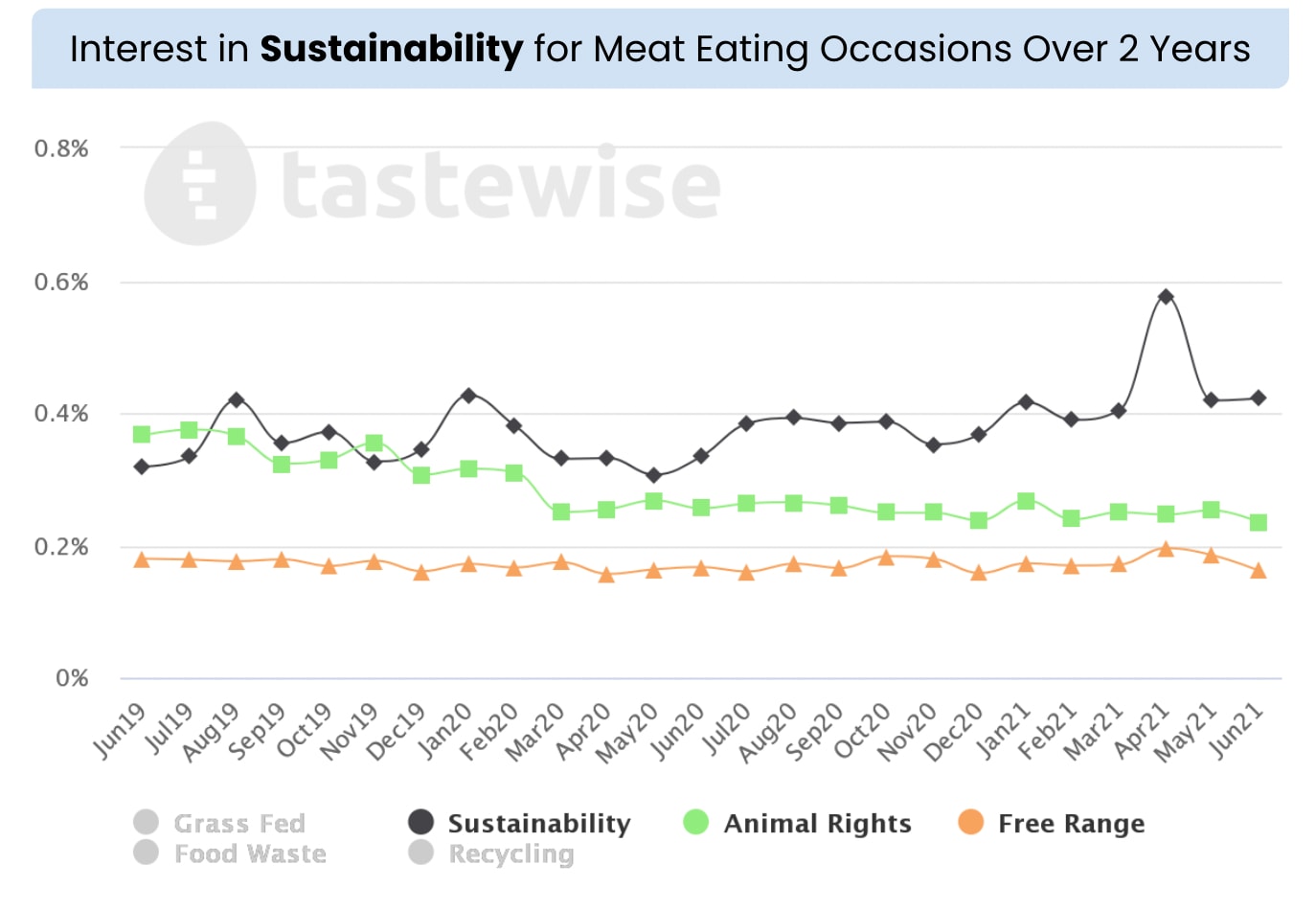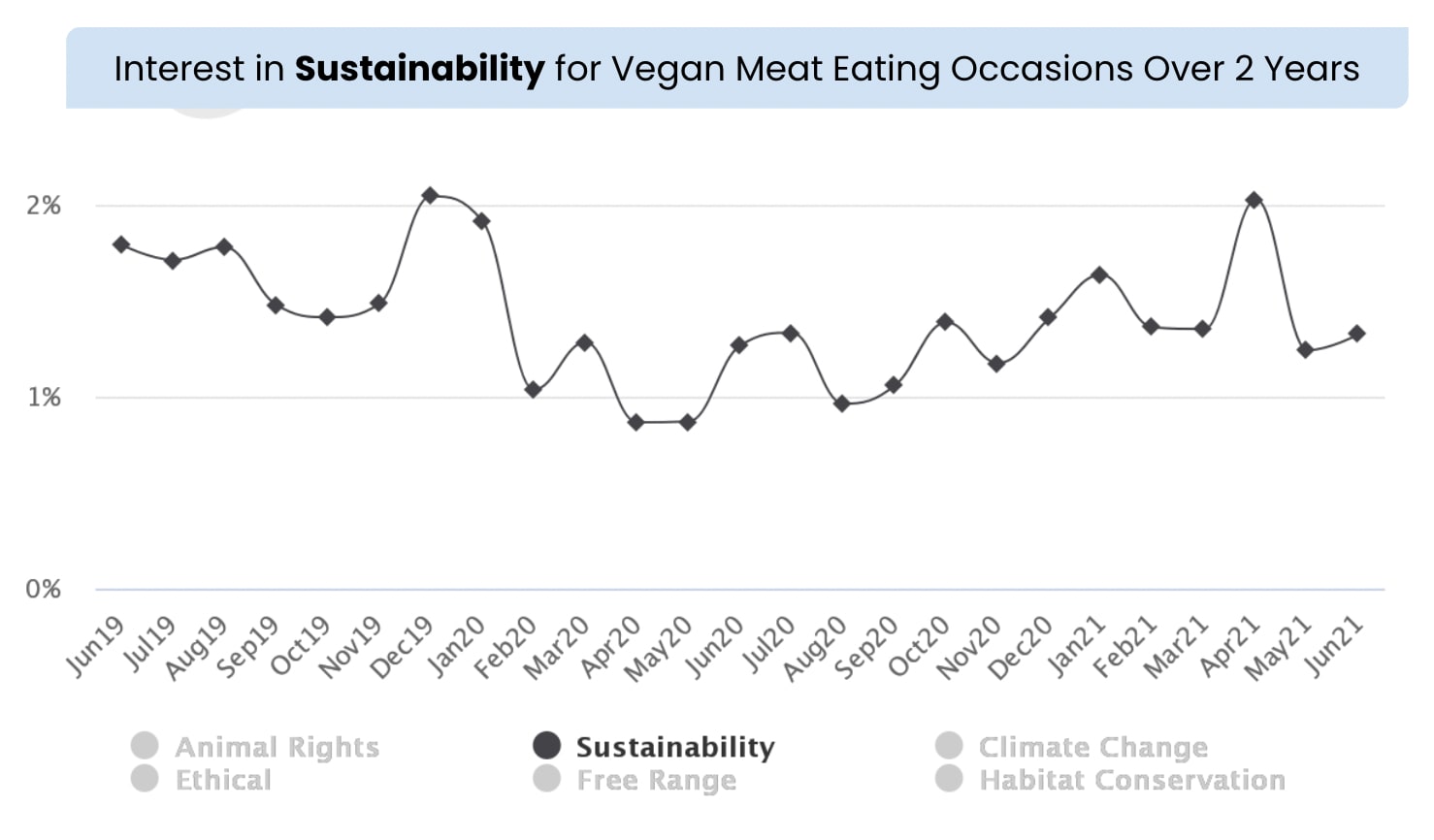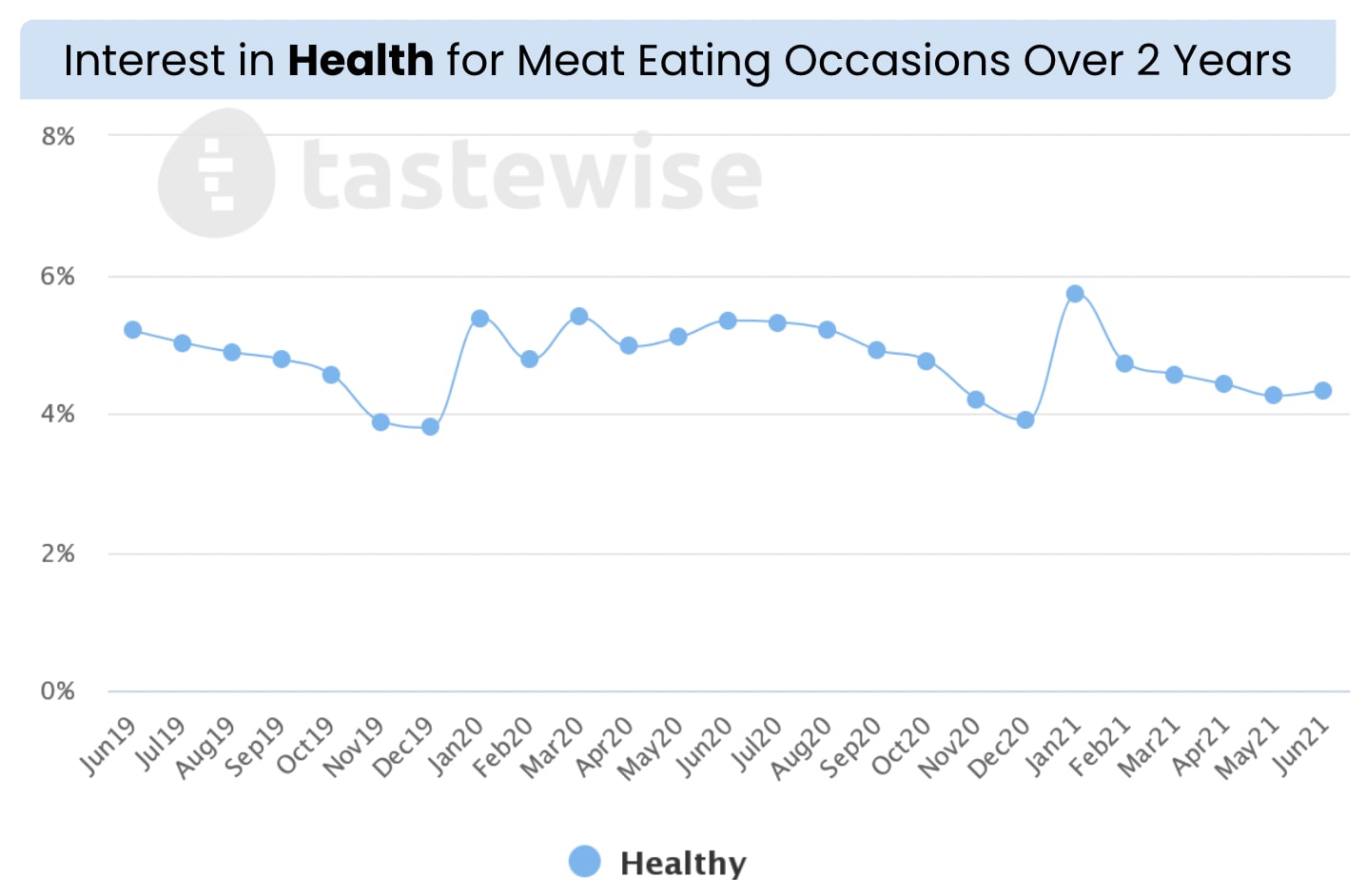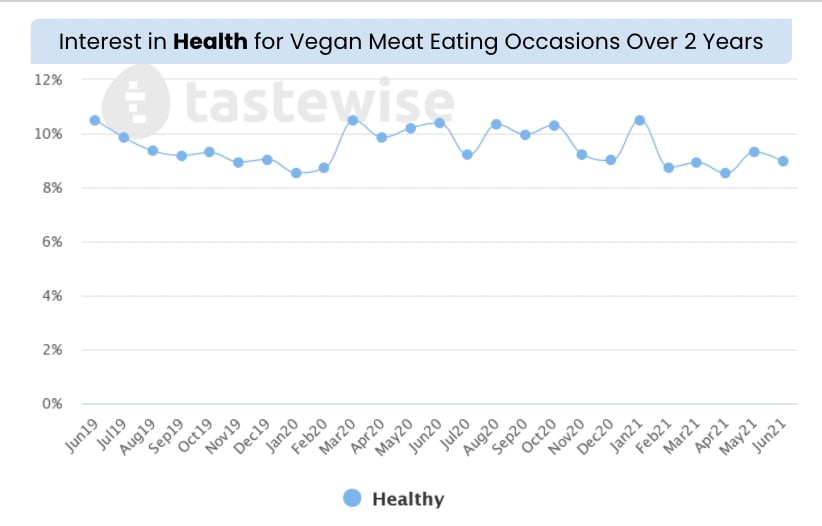Which rules for vegan meat: personal or planetary health?

Personal health and planetary health are both important motivators for vegan meat alternative consumption… but which is the more significant trend today – and tomorrow?
When an American consumer sits down to a juicy, vegan hamburger, what is likely to be the primary reason for that choice?
A range of motivations abound for eating plant-based meat alternatives, and the category is no longer “just” for vegans; broadly, plant-based eating and drinking accomplishes goals for omnivores, vegetarians, and vegan alike. These goals range from personal health – the effect of a plant-based product on the digestive and physical health of the eater – through to planetary health, or the wider impact of consumption on planet earth.
Personal and planetary health are hardly siloed categories; an unhealthy planet contributes directly to – whether now or later down the road – to the declining health and wellness of its people. Still, vegan meat alternatives offer distinct benefits in both categories. Let’s take a look at the data to understand how exactly people are relating to vegan meat alternatives in the mainstream, and if they are prioritizing personal or planetary health.
What’s up with personal health motivations?
To start, it’s important that we understand how consumers relate to animal meat, in order to best evaluate if the motivation behind vegan meat products and dishes are exceptional. Looking first at meat, we see that health-related motivations account for 4.3% of discussions about meat. This interest is on the decline; dining occasions that mention the health qualities of meat are down -35% since last year, and -19% over the past years. Health interest for food and beverage broadly grew over the original spike of the pandemic in the US, and remains at a level +18% higher than pre-pandemic levels. The fact that interest in health and meat has not only decreased from early pandemic levels, but also pre-pandemic levels indicates that the trend is clearly on the decline for meat applications.







Within vegan meat categories, however, 9% of discussions relate to health — that’s more than 2x the penetration of health within the category of animal meat. Said differently, consumers are 2x more likely to care about health when eating vegan meat than animal meat. That interest in health, however, is declining -11% YoY. When we look at interest in health for vegan meat over the past 2 years, we see that interest is up +14%, in opposition to how the motivation performs for animal meat; this is a good indication that health interest in vegan meat is a trend that will continue to be relevant for consumers.
Next, let’s check out sustainability.
While only 0.42% of consumer discussions of animal meat include mentions of sustainability, that interest is growing +31% over the course of the last two years. Despite the pandemic briefly derailing general interest in sustainability across food and beverage, interest in sustainability among animal meat eaters is growing at a not insignificant rate; this is an important consumer mentality switch to watch, and offers interesting, emerging opportunities for brands to engage in over the coming months and years. Within the nexus of sustainability, we’re seeing that interest in animal rights within animal meat dining occasions is actually down -38% over the past 2 years, and interest in free range meat has experienced little growth over the last two years; this could indicate that sustainability for meat consumers revolves more around planetary health (ie. the impact of the meat industry on the environment) rather than on the impact on actual animals.
Turning to vegan meat, we see that interest in sustainability sits at 1.3% — about 3x times the interest we saw within the animal meat category. That interest is growing +57% YoY, but is down -26% over the last two years after a significant early-pandemic slump. This indicates that interest in sustainability for the category hasn’t quite returned to pre-pandemic levels, but the established interest is a clear indicator that the motivation matters significantly for the category. Interest in sustainability for vegan meat is also 3.5x the level of interest for sustainability generally across food and beverage.
What specifically draws vegan meat consumers to sustainability? We see that animal rights account for 5.4% of interest within vegan meat dining occasions (a full 42x the average interest across food and beverage!) — but, like within animal meat, interest in animal rights is declining YoY (-14%). Interest in climate change, however, accounts for 1% of vegan meat conversations, and is growing +83% YoY. Across vegan and animal meat categories, it appears that interest is more focused on the broader planetary effects of the ingredients than on the sources of the ingredients themselves.
So where does this leave our enthusiastic vegan burger eater at the top of the article?
We can safely assume that while our diner likely turned to a vegan burger for health reasons (remember, health is associated with vegan meat alternatives in 9% of conversations, while sustainability only shows up about 1% of the time), our hungry friend will likely return to eat a vegan burger for sustainability reasons in the future. Sustainability is growing +57% YoY, while health interest is in decline.
Looks like today, personal health wins…
…but tomorrow, planetary health may very well ‘take the cake’. We at Tastewise are looking forward to a day where personal and planetary health concerns are aligned, and food and beverage bring balanced wellness to both eaters and their environment!
Stay tuned for more insights into plant-based meat over the month of August – check out our portal here for updates on releases, and more!

